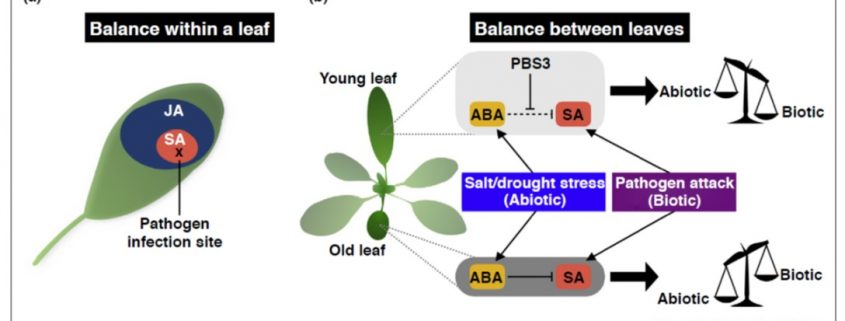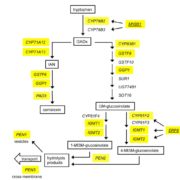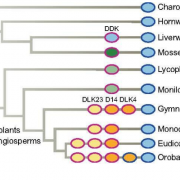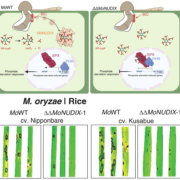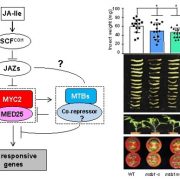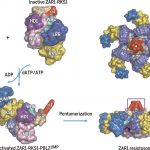Review: The plant immune system in heterogeneous environments (Curr Opin Plant Bio)
Nobori and Tsuda review how the plant immune system is able to function in heterogeneous environments through its properties of resilience, tunability and balance. They define a resilient system as one where “output remains stable even when part of the system is disabled.” Abiotic factors such as high temperatures and pathogen effectors can disable parts of the immune system, so its continued functioning demonstrates its resiliency. Tunability is when outputs can change depending on the types and amounts of inputs; as an example, the immune system tends to be switched off unless needed, allowing the plant to invest its energy into growth. The molecular underpinnings of resilience and tunability are described and specific examples are reviewed here. Balance is about managing conflicting needs, such as simultaneous attack by multiple pathogens, or abiotic stresses alongside biotic stresses. Less is known about how balance is achieved, but examples of balance are presented. The authors observe that a greater understanding of immune system functions that ensure survival in complex, heterogeneous environments might provide opportunities to increase yields in the relatively homogeneous environments experienced by many crop plants. (Summary by Mary Williams) Curr. Opin. Plant Biol. 10.1016/j.pbi.2019.02.003


